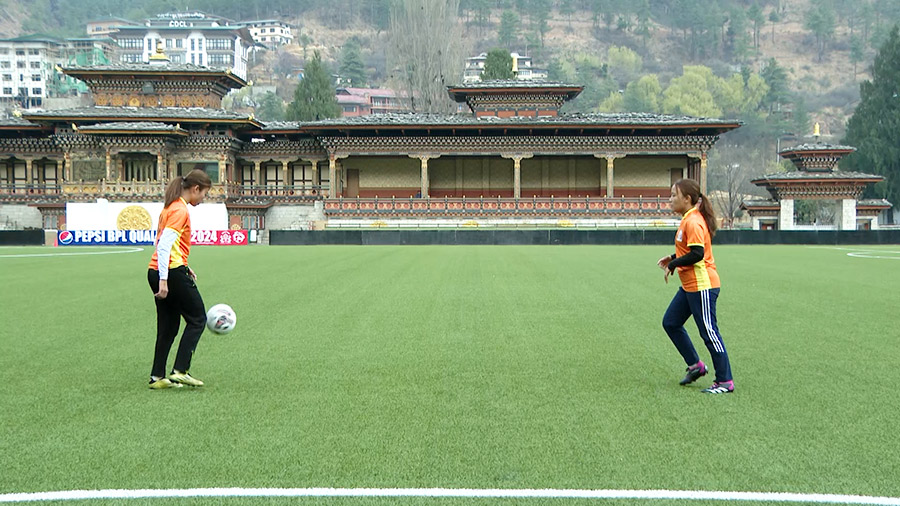
From having the first junior team to compete at an international tournament in 2003 to having national teams of different age groups, women’s football in Bhutan is gaining popularity. Despite the increasing number of participation in women’s football, it is yet to receive the recognition, appreciation, and professional status that it deserves.
After the under-17 women’s team made its debut in 2003, no women’s team from Bhutan participated in an international competition until 2010.
The seven-year hiatus was brought to an end when the Bhutan Football Federation sent its contingent to the 2010 SAFF Women’s Championship.
To select the first women’s national squad, the BFF along with football’s international governing body, FIFA, held a tournament amongst teams from various districts. Selected players then played a warm-up game against Bangladesh in Dhaka.
Since then, the women’s team has taken part in several international tournaments.
“Within this short time, there has been a drastic improvement in women’s football teams. For example, last year we played the AFC qualifiers in Uzbekistan. We were able to win against teams, which are ranked higher than us like Jordan and Timor Leste. Also during the Saudi Arabia friendly tournament, we were able to secure a runners-up position,” said Sonam Choden, a player with the National Football Team.
In 2022, Deki Lhazom, signed for Saudi Arabia’s A-Ittihad Football Club, becoming the first female footballer in the country to sign for a foreign club.
Deki Lhazom said, “The main difference I have seen in Saudi football and ours is that the league there is professional and well organised. They have their club anthem too. They even reward hat-trick with a trophy. The clubs pay them very well so that they can sustain and support their family.”
Last year, the national team played eight international matches, the highest in a calendar year, winning three.
At the domestic level, investment in women’s football and participation in women’s teams are also increasing. Today, there are seven women’s football clubs registered with the BFF.
Despite encouraging gender equity in sports, female footballers say gender stereotyping and inadequate resources continue to affect women’s participation in football.
“We need a lot of exposure matches to improve. However, due to funding shortages, we cannot compete against other countries. We want to play against higher-ranking countries, but they do not accept us due to our ranking,” said Sonam Lhamo, a player with the National Football Team.
Former National Player Bumchu Chimi Pem said, “People have a notion that women cannot do well like that of men. They think we are of no use. Women do not have their own identity. Although women’s football started late, we have improved a lot. We can see that in our ranking. People have to acknowledge women’s potential.”
National Football Team’s captain Pema Choden Tshering said, “We will be hosting Hong Kong, China’s women’s team. Their team is ranked almost 100 positions higher than ours. But this kind of opportunity is good for us. Facing stronger opponents helps us improve. We want to prove to people that we have improved a lot.”
These players say the football federation, government, and other stakeholders involved have to commit to investing in women’s football to encourage participation and enhance worldwide representation.
Bhutan is ranked 184 out of the 211 member associates in the latest FIFA women’s rankings.
Tsheyang Tshogyal (Intern)
Edited by Sangay Chezom









